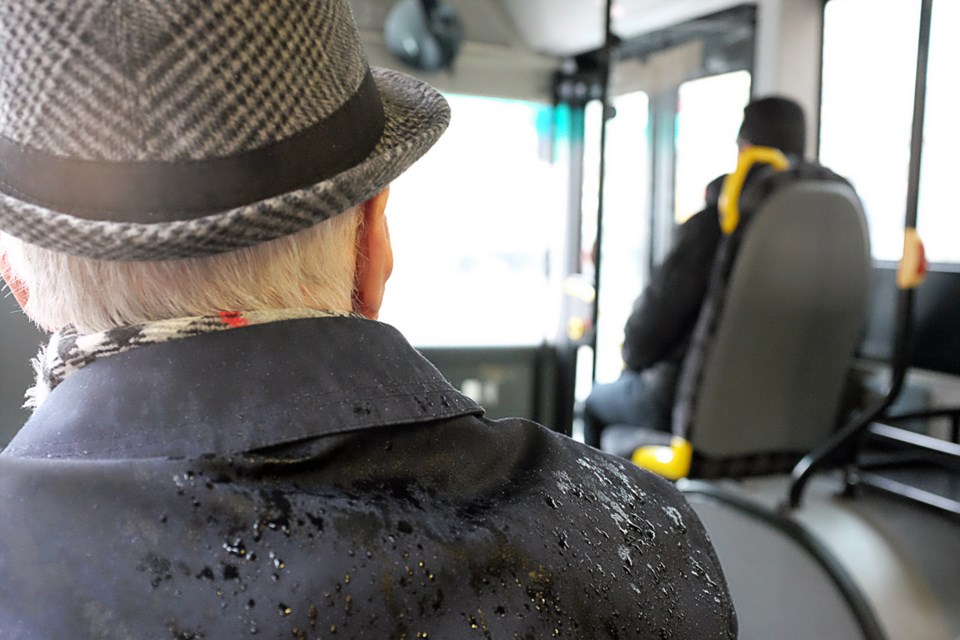As efficient as they are, HandyDart and public transit don’t meet the needs of older seniors who still want to be able to get out into their community for appointments, socializing, shopping and more.
That’s why it’s important to get behind the recommendation of the B.C. Seniors Advocate for a community driver program to be added to the community home support system that now provides bathing and medication services for older people.
It isn’t enough for seniors to rely on friends and family and a dwindling pool of volunteers to get around once they give up the keys to their vehicles.
HandyDart rides work well if planned in advance, but many rides go unfulfilled; buses are difficult to get to, wait for and access for people in walkers; and cab drivers, once at the destination, won’t typically aid someone in getting to the door.
What’s needed is a service to fill some of these gaps, and the transportation report released this week by Isobel Mackenzie offers an intriguing solution: adding driving services to the programs that home support services typically offer on a sliding scale basis.
The idea would be to have two classifications of workers: the home care worker and a community support driver, both of whom are trained and meet the requirements of authorities.
According to the seniors advocate, this publicly subsidized service would complement, not replace, public transit and HandyDart, and could efficiently be added to the current home care service.
This report is required reading for everyone: from health care and transportation officials to politicians, and anyone who expects to live past 75, because that’s when seniors’ car usage typically begins to drop.
Ask yourself this: What am I going to do when my mobility declines and I have to give up my licence?
Am I prepared to be isolated and stressed?
Will my family be able to help me?
To quote Mackenzie’s report: “Seniors must be able to get out and engage in their communities, and transportation is key to achieving the social inclusion necessary for seniors to optimize their independence and community engagement.”
We say “Yes” to that.



